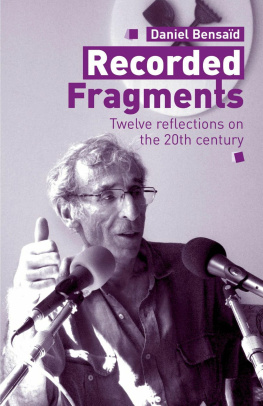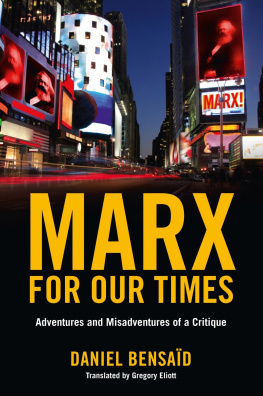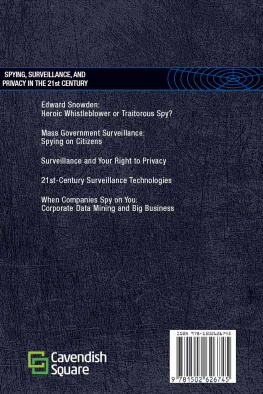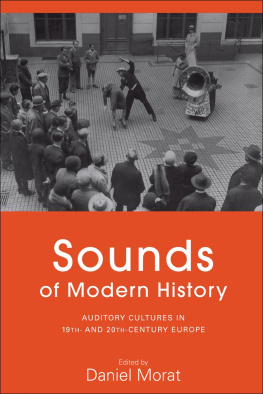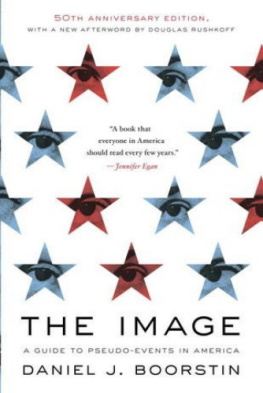Recorded Fragments
Recorded Fragments
Twelve reflections on the 20th century with Daniel Bensad
Daniel Bensad
IIRE and Resistance Books
Daniel Bensad was born in Toulouse in 1946. He became a leader of the 1968 student movement and subsequently of one of France's main far left organizations (Ligue Communiste Rvolutionnaire) and of the Fourth International. He is the author of Marx for our Times, Verso: 2010 , Strategies of Resistance, Resistance Books: 2014 and An Impatient Life, Verso: 2015. He died in Paris in 2010.
RECORDED FRAGMENTS
Twelve reflections on the 20th century
with Daniel Bensad
English edition published in 2020 by the International Institute for Research and Education and Resistance Books.
English translation IIRE and Resistance Books.
Edited by Penelope Duggan.
Cover design by Adam di Chiara.
Recorded Fragments is issue no. 68 of the IIRE Notebooks for Study and Research.
First published as Fragments Radiophoniques 12 entretiens pour interroger le 20e sicle by Editions du Croquant, 20 route d'Hricy, 77870 Vulaines-sur-Seine, 2020. Editions du Croquant .
Acknowledgments in the French edition
The publication of this book is the result of the collective work.
Robert March, Jacqueline Guillotin, Come Pierron, Guillaume Garel, Marion Druart, Hegoa Garay and Olivier Neveux transcribed and corrected the interviews.
Thierry le Bail (tlebail@mailo.com) did the cover design.
Thanks again to Louis Weber and the publisher of Le Croquant, to the whole team of Frquence Paris Plurielle and of the show Lesoreillesloin du Front, Laurent and Gwenn from the group Sous laRuine, Camille Jouve, Alexandre Gurin and Christine Poupin, Pierre Barron and Patrick Le Moal.
Pierre Barron and Patrick Le Moal (coordinators)
The audio version in French of the interviews with Daniel Bensad is available here: http://www.loldf.org/bensaid/bensaid.html.
Acknowledgements for the English edition
Bernard Gibbons, Dave Kellaway, Fred Leplat and Marie Stewart translated the book which was edited by Penelope Duggan.
Notes on contributors
Olivier Besancenot was presidential candidate for the LCR in 2002 and 2007 and spokesperson of the NPA from its foundation in 2009, while remaining a postal worker. He is the author of several books, including two with Michael Lwy. His most recent is Que faire de 1917 ? Une contre-histoire de la rvolution russe.
Isabelle Garo is a philosophy teacher and writer specializing in the works of Karl Marx. She is the author of several books, the most recent is Avec Marx, philosophie et politique, with Alexis Cukier.
Michael Lwy is an internationally-known Marxist intellectual. He is honorary director of research at the CNRS in France. The most recent of his works is Romantic Anticapitalism and Nature. The Enchanted Garden with Robert Sayre
Arya Meroni and Hegoa Garay are feminist activists in Toulouse.
Olivier Neveux is professor of theatre history and aesthetics at the Ecole Normale Suprieure in Lyon.
Ugo Palheta is a lecturer at the University of Lille and author of La possibilit du fascisme. France : trajectoire du dsastre.
Christine Poupin is an ecosicalist acitivist and trade-unionist. She has been a spokesperson of the NPA since 2011.
Pierre Barron and Patrick Le Moal who coordinated the book were also active in the NPA (and Patrick Le Moal in the LCR) alongside Daniel Bensad.
Contents
MichaelLwy
Daniel Bensad was one of the most creative, imaginative and sharpest minds in the contemporary history of Marxism, in France and beyond. He had the gift of combining fidelity to our Great Ancestors Marx, Lenin, Trotsky with an extraordinary open-mindedness and boundless curiosity, which made him read with profit the memoirs of Chateaubriand and the biography of Joan of Arc, the sociology of Max Weber and the political philosophy of Hannah Arendt. All his writings are driven by the irreducible force of indignation, an indignation which, he wrote in Lesirrductibles (2001), is a beginning: [It is] a way of getting up and going. One becomes indignant, one rebels, and then one sees.
We got a lot closer during the 1980s. I probably contributed to his discovery of Walter Benjamin, and he made me read Charles Pguy. We shared an attraction for Auguste Blanqui, about whom we wrote an article together. Admittedly, we still had some disputes, for example about Rosa Luxemburg, whom I preferred to Lenin... But our elective affinity was visible enough for our Brazilian comrades to publish two volumes (in 2000 and 2017) of our mixed writings.
It is true that these recorded fragments do not have the literary brilliance of his writings, where each word was cut and chiselled like a diamond. They have, in exchange, the direct, spontaneous, refreshing style of oral interventions. Their publication is therefore a significant and welcome contribution to the rich collection of his work. In his answers to the questions asked by his friends we find some certainties, but also many question marks: for example, was the social revolution on the agenda in May 1968? This capacity for doubt is to Daniels credit!
These interviews concern the short twentieth century (Eric Hobsbawm) from the Russian Revolution to the fall of the Berlin Wall, including the German Revolution, the Spanish Revolution, Fascism, Stalingrad, the Cold War, the tragedy of Greek communism, the Algerian Revolution, May 68, feminism, the Black movement, Lumumba and African independence, the Cuban Revolution and Guevarism, Allendes Chile and Miguel Enriquezs MIR, the Mitterrand years. No doubt ecology is missing, but it is true that the question was not put to him.
Of course, this excursion into twentieth-century history is the work of an activist, far removed from any pretension of scientific or academic historiography. It is the expression of a thinker who does not compromise in his fidelity to the ideals of communism, and to the revolutionary legacy of the October Revolution. He defines himself as belonging to a generation for whom 1917 was still something that stirred. In fact, the spirit of the Red October runs like a thread of that colour through all these talks, and illuminates, like a distant but ever-present light, each of his words.
Certainly, he acknowledges that the Bolsheviks of the Leninist years (1917-23) made mistakes: Lenin refused to discuss laws or a civil code, while the terrifying violence of the Chekist terror was being exercised without legal limitations. After the end of the civil war and the victory of the Reds, many exceptional measures could be suspended; however, there was on the contrary a hardening of the authoritarianism of the regime, with the opening of political prison camps in 1923. The same is true for Leon Trotsky, head of the Red Army: his book Terrorism and Communism (1920) is a frightening text in many ways.
However, Bensad opposes, with the last of his energies, the conformist discourse which assimilates Bolshevism and Stalinism, proclaiming, in a kind of parody of biblical genealogies, that Rousseau begat Marx, who begat Lenin, who begat Stalin. In fact, Daniel rightly argues, a world separates the October revolutionaries from the Stalinist counter-revolution (which exterminated them all).

